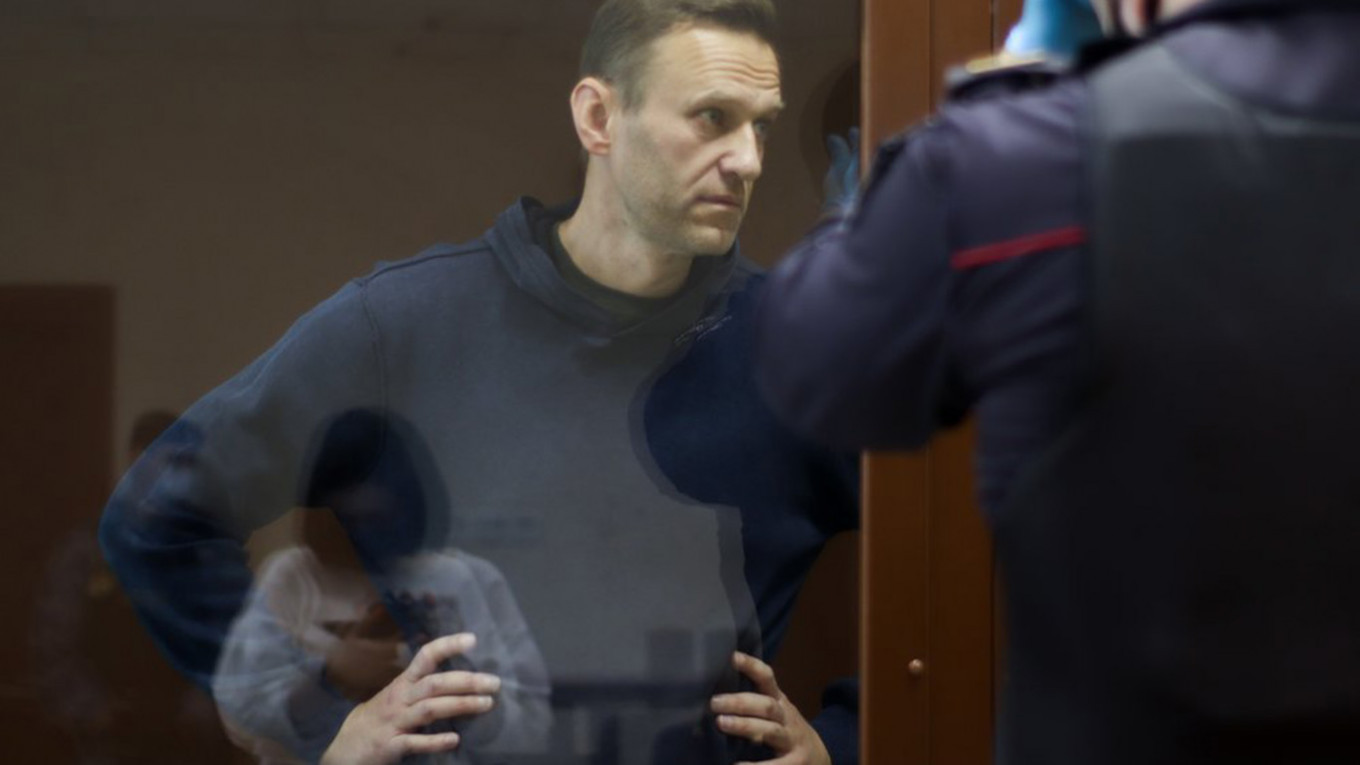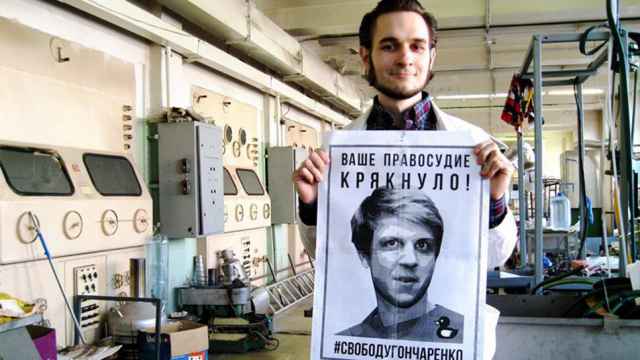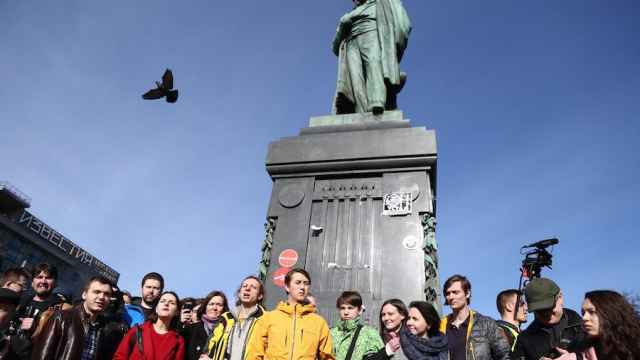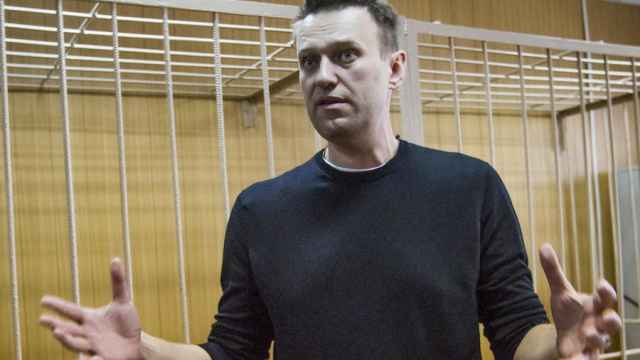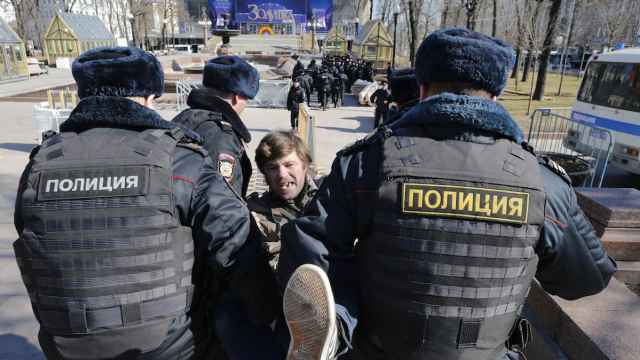Jailed Russian opposition leader Alexei Navalny called on the West to prioritize the fight against global corruption — which he said is behind the world's main crises — in a letter from prison published in Western newspapers on Thursday.
Navalny is being held in a maximum security prison outside Moscow. He was sent there in February after returning from Germany where he was recovering from a near-fatal poisoning attack that he blames on the Kremlin.
The letter was published in The Guardian and Le Monde newspapers for the first anniversary of Navalny suddenly falling ill in Siberia.
Navalny, who has built his political career on exposing corruption in Russia, said the issue has "long ceased to be merely an internal problem" of authoritarian countries. It is now "one of the main causes of the global challenges that face the West."
He called on Western countries to challenge authoritarian leaders — including his nemesis President Vladimir Putin — on corruption at international summits despite it being "very awkward."
The Kremlin critic said corruption in authoritarian regimes is facilitated by Western financial systems and laid out several "entirely realistic, easy to implement" steps to fight it.
These included creating a "special category" of countries that encourage corruption, making it easier to take measures against them.
He also called for the West to introduce "enforced transparency" for Western companies that deal with partners from corrupt countries and to create an international body to monitor corruption.
"No money, no soldiers" are needed to implement these, he said, "only political will."
The Kremlin denies poisoning Navalny, and has maintained his prison sentence is not political, saying he had failed to report to Russian authorities as he had been required to do.
Navalny's movement has faced unprecedented pressure in Russia ahead of September parliamentary elections.
This month Russian investigators charged Navalny with new crimes that could prolong his time behind bars by up to three years. If found guilty, he would not be released before 2024, the year Russia is scheduled to hold a presidential election.
A Message from The Moscow Times:
Dear readers,
We are facing unprecedented challenges. Russia's Prosecutor General's Office has designated The Moscow Times as an "undesirable" organization, criminalizing our work and putting our staff at risk of prosecution. This follows our earlier unjust labeling as a "foreign agent."
These actions are direct attempts to silence independent journalism in Russia. The authorities claim our work "discredits the decisions of the Russian leadership." We see things differently: we strive to provide accurate, unbiased reporting on Russia.
We, the journalists of The Moscow Times, refuse to be silenced. But to continue our work, we need your help.
Your support, no matter how small, makes a world of difference. If you can, please support us monthly starting from just $2. It's quick to set up, and every contribution makes a significant impact.
By supporting The Moscow Times, you're defending open, independent journalism in the face of repression. Thank you for standing with us.
Remind me later.


